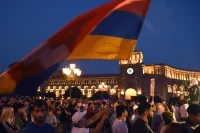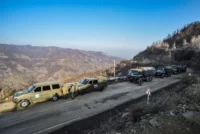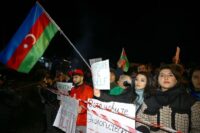Rusia es débil
Después de 35 años de luchas, la guerra entre Armenia y Azerbaiyán por Nagorno-Karabaj parece a punto de acabar con la victoria total azerbaiyana. Las tropas rusas, teóricas aliadas y garantes del bando armenio, han permanecido pasivas. Esto se explica porque en los últimos meses Armenia estaba virando claramente hacia Occidente, saliéndose de la órbita rusa. Sin embargo, eso se debe en parte a que los rusos ya les habían dejado en la estacada en septiembre de 2020, precisamente como castigo por sus veleidades pro-occidentales.
La humillación militar de 2020 obligó al Gobierno armenio a mantenerse como vasallo de Rusia, pero dieciséis meses después, Putin invadió Ucrania.… Seguir leyendo »
















